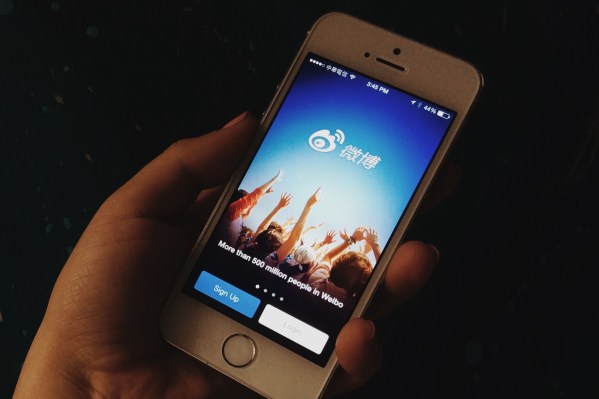Weibo, the influential microblogging service owned by Sina, has reportedly raised just $285.6 million in its initial public offering, according to Bloomberg.
Weibo, which has about 143.8 million monthly active users and is known for its impact on public discourse in China, sold 16.8 million American Depositary Shares (ADS) for $17 each. Those figures mean it underperformed Sina’s own expectations, which were to sell 20 million ADSs at between $17 and $19 per share.
The service’s underwhelming IPO, however, should not be taken as a harbinger of doom for other Chinese tech companies that plan to list soon on U.S. stock exchanges.
Though Weibo’s user base is still growing steadily, it now has to compete with a host of messaging apps. Chief among those WeChat, which was created by Tencent, one of China’s biggest Internet companies and a major Sina competitor.
Messaging apps like WeChat have successfully made revenue through games and the sale of stickers. Weibo’s road to monetization, however, has been less clear. Its U.S. counterpart Twitter has gradually figured out a strategy to make money, but Weibo has said it faces additional challenges like censorship by the Chinese government.
In its IPO filing, Weibo stated:
“Although our active user base has increased over the past several years, regulation and censorship of information disseminated over the Internet in China may adversely affect our user experience and reduce users’ engagement and activities on our platform as well as adversely affect our ability to attract new users to our platform. Any and all of these adverse impacts may ultimately materially and adversely affect our business and result of operations.”
Other tech firms seem better poised to benefit from the resurgence of interest in Chinese IPOs since 2012, when share prices fell after several firms pulled out of the U.S. stock market in response to accusations of improper accounting by regulators.
China’s largest e-commerce company, Alibaba Group, will reportedly file for its share sale next week. The valuation of its IPO may be even more than Facebook, which raised $16 billion. One of Alibaba’s main rivals, JD.com, also filed for a U.S. listing worth $1.5 billion in January.
Though the rapid expansion of China’s e-commerce market is expected to begin slowing down this year, it still enjoys much faster growth than other countries like the U.S.
Chinese consumers spent RMB 1.3 trillion (about $209 billion) in 2012 and are expected to spend RMB 3.5 trillion ($563 billion) by 2015, according to Bain, especially as third-party payments and online payments gain traction.
